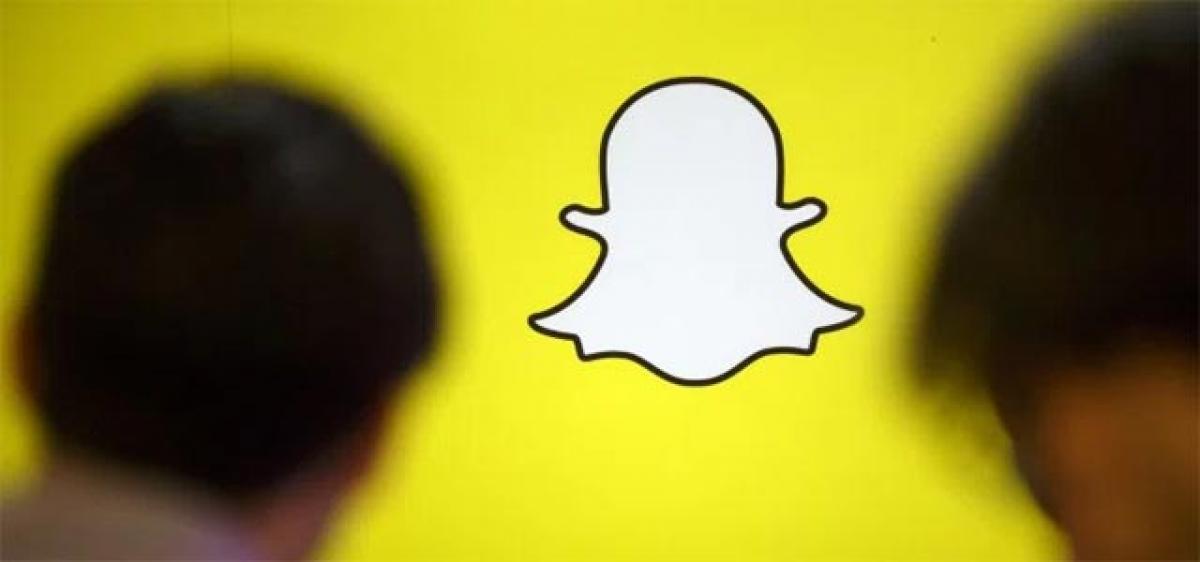Live
- NASA Tracks Five Giant Asteroids on Close Approach to Earth Today
- Pushpa 2 Hits ₹1000 Crore in 6 Days: How It Compares to Other Top Indian Films
- Vivo X200 and X200 Pro Launched in India: Price, Specifications, and Features
- Nitin Gadkari Admits Feeling Embarrassed at Global Summits Over Rising Road Accidents in India
- Comprehensive Review on Indiramma Housing Survey and Welfare Initiatives Conducted via Video Conference
- Jogulamba Temple Records Rs 1.06 Crore Hundi Revenue in 150 Days
- Opposition Slams ‘One Nation, One Election’ Bill as Anti-Democratic; BJP Allies Support the Move
- Celebrate Karthigai Maha Deepam Virtually with Sri Mandir’s LIVE Darshan Experience
- BJP Extends Support to Samagra Shiksha Abhiyan Employees' Strike, Demands Immediate Regularization and Welfare Benefits
- Dr. M. Priyanka Stresses Quality Education, Nutritious Meals, and Cleanliness in Schools
Just In

Founded in 2004, Facebook – on track to hit two billion active monthly users this year – is now the fifth-largest US firm by market capitalisation (exceeding $400 billion) and owns the world\'s most popular apps: WhatsApp, Instagram and Messenger.
New Delhi : Founded in 2004, Facebook – on track to hit two billion active monthly users this year – is now the fifth-largest US firm by market capitalisation (exceeding $400 billion) and owns the world's most popular apps: WhatsApp, Instagram and Messenger.
On the other hand, popular image messaging platform Snapchat's parent company Snap Inc grew to $25 billion in market capitalisation after its mega IPO in March. Launched in 2011, Snapchat today has a little over 160 million active daily users.
That Facebook is going after Snapchat is not news, but the battle has now become somewhat ugly. At its recently-concluded F8 developer conference in San Jose in the US, CEO Mark Zuckerberg launched "Camera Effects Platform" to encourage augmented reality (AR) effects – a move reported by The New York Times as Facebook's ‘brazen heist’ over Snapchat.
It is Snapchat which has popularised animated AR selfie masks and facial filters. Facebook has also added Snapchat-style "Stories" and camera special effects to all its core social apps: Facebook, Messenger, WhatsApp and Instagram.
Facebook has also added Geostickers to Instagram, offering location-specific tags in two cities (New York City and Jakarta) that users can paste over images. Snapchat launched Geofilters back in 2014.
Why does a giant need to "copy" or borrow features at all when it can innovate at will? "Facebook is not just learning/borrowing features from Snapchat (mostly to Instagram), but it has been borrowing features from other messaging apps too. For example, Facebook Messenger learned a lot of features from WeChat (China) since last year's F8, such as creating branded accounts and letting brands use it for customer services," Xiaofeng Wang, Senior Analyst with US-based market research firm Forrester, told IANS.
The new group chatbot feature announced at F8 this year is also very similar to what "Line" (Japan) has already offered. It's not unusual in the tech industry to create similar features inspired by other companies. Line and WhatsApp picked up the idea of a voice messaging feature from WeChat too. "Legally, it's hard to prove 'copy'. But Facebook has been launching new features to retain user-activity and attract younger generations as Snapchat attracts the younger generation better than Facebook," Wang noted.
Originally launched by Snapchat, the "Stories" feature shows photos and videos shared in chronological order that disappear after 24 hours. Facebook introduced something similar in its app Instagram last August. Today, Instagram has over 200 million people Stories daily – more than even Snapchat. Today, Messenger, WhatsApp and the main Facebook app have all added "Stories" feature (In WhatsApp, it is called 'Status').
According to Anoop Mishra, one of the nation's leading social media experts, most of the product-based companies involve their research and development team to keep a close eye specially on the features implemented by surrounding chasers. "This could be a part of their strategy to influence more and more active users and keep themselves ahead of the surrounding competitors which helps them gain internet ad revenue share as well," Mishra added.
Is this open "dadagiri" on the part of Facebook or is everything fair in love and technology? "I would like to call it a strategic 'dadagiri' rather than 'open dadagiri'. Why I'm saying strategic 'dadagiri' is because these things not only help one gain market share but also prepare grounds for acquisition and mergers," Faisal Kawoosa, Principal Analyst (Telecoms) at CyberMedia Research (CMR), emphasised.
Zuckerberg even tried to acquire Snapchat for $3 billion in 2013, but its co-founder Evan Spiegel refused the offer. Now Spiegel is engaged in a different kind of battle with Facebook. Spiegel, who was in the news recently for his purported disinterest in expanding business to "poor countries" like India – something that created an uproar in social media and was later refuted by the parent company Snap – must actually have a fresh look at India.
There are over 200 million WhatsApp users in India while Facebook has nearly 166 million. Snapchat? A mere four million, according to media reports. This is where Spiegel needs to focus as the Indian market is among the world's largest – and growing – when it comes to social media use. Ignoring the "rich" millenials in the country will only harm Snapchat as Facebook will gobble them up.
By Nishant Arora

© 2024 Hyderabad Media House Limited/The Hans India. All rights reserved. Powered by hocalwire.com







